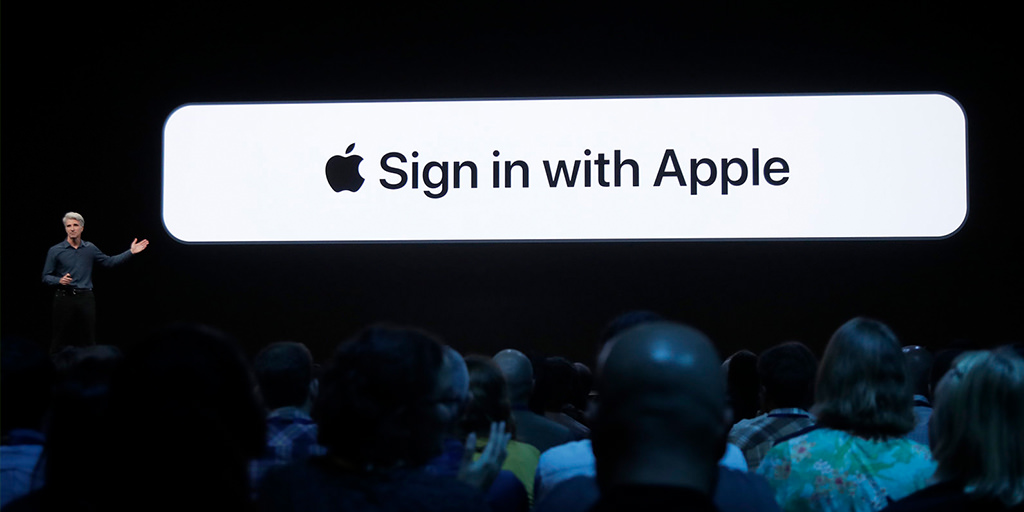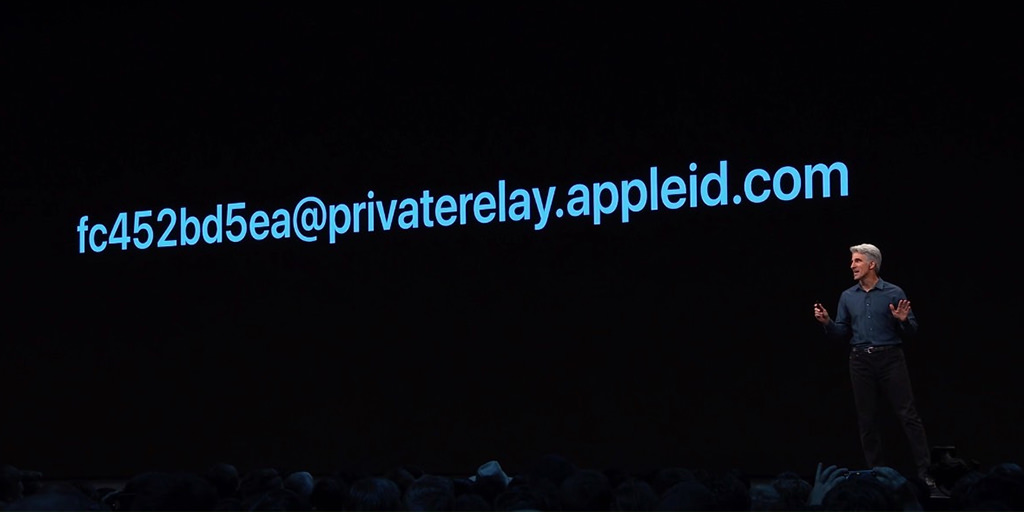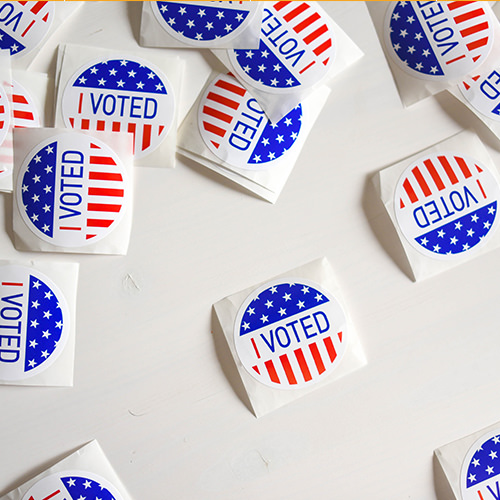It’s been a rough few years for privacy. Corporations are increasingly tracking everything we do online. If that wasn’t bad enough, options to log into websites using your Facebook or Google or Twitter IDs are becoming more and more ubiquitous, making sign-in easy to set up, but exposing all your activity to the social media site you are signed into. What’s a privacy-conscious Internet user to do?
We’ve just been thrown a bone, and it comes from Apple. Historically, Apple has been the lone tech giant to make privacy a top priority (others have made noises recently, but talk is cheap). Among the announcements at Apple’s annual developer conference this week was a feature called Sign In with Apple. It’s going to be like signing in with your least-hated social media account, but a little bit different.

When you sign in using this option, instead of identifying yourself to the site and exposing all of your online activity, your account will be anonymous. The site you’re signing into doesn’t know who you are, and, perhaps more importantly, you can’t be connected to the trove of knowledge that the social media companies have about you: instead, you’ll be assigned a random user ID. Sites can still require an email address for contact purposes, but Apple can hide your actual email and provide the site with a single-use forwarding address, which nobody but Apple can identify as yours.

Of course, all of that assumes that we can trust Apple more than the other tech giants. Why should we believe that they will handle our private information better than the rest? Many will say that we shouldn’t, and it’s always a good idea to remember that Apple’s interests are not always the same as those of its customers. But Apple’s business model doesn’t depend on knowing everything about you, and the fact remains that Apple continues to be a pioneer in online privacy.
They created Apple Pay, which is extremely secure and prevents your credit card from being tracked. When they collect navigation data from users of Apple Maps, they erase the starting and ending points of trips to avoid leaking private details. And, they have constantly updated the Safari web browser to make it harder for sites to track you. Unlike the other giants, Apple has a genuine track record of trying to protect the consumer. And furthermore, Sign In with Apple will be based on Apple’s Touch ID and Face ID, two effective authentication tools that have proven rock solid in the real world.
After this feature becomes available, we expect to see widespread adoption, especially since Apple will soon be requiring it as an option in any apps that use other third-party sign-in options, like Facebook login. (This is also consistent with Apple’s track record — they were far ahead of the game in requiring apps to encrypt all of their network traffic.)
At Cantina, we will be working closely with our clients and partners to evaluate Sign In with Apple and, where practicable, adopt it. We believe privacy is a critical area of responsibility and need in today’s online world and we look forward to leading the way as Sign In with Apple and other tools that increase user security and privacy become available.
If you need help with Sign In with Apple or have other privacy and security needs related to your digital products or services, let us know, we’d love to help.



